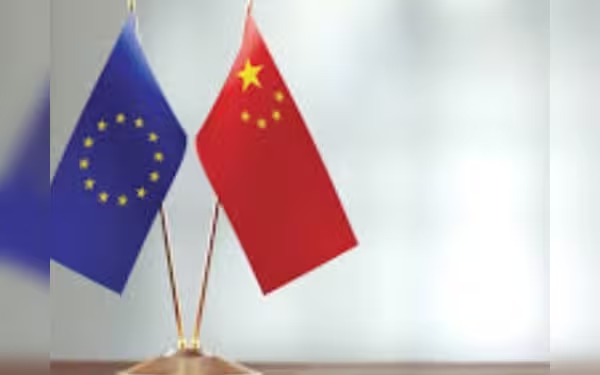Saturday, November 16, 2024 05:38 PM
China Issues Warning to EU Over Electric Vehicle Pricing Negotiations
- China warns EU against separate EV price talks.
- Concerns raised over potential tariff negotiations.
- China emphasizes need for cooperative trade relations.
 Image Credits: tribune.com.pk
Image Credits: tribune.com.pkChina warns the EU against separate negotiations on electric vehicle pricing, stressing the importance of cooperative trade relations.
In recent developments, China has issued a stern warning to the European Union (EU) regarding potential negotiations over the pricing of electric vehicles (EVs) manufactured in China. This warning comes amid growing discussions about the future of electric vehicles in the EU market, which has seen a significant increase in demand for eco-friendly transportation options.
On Saturday, Chinese officials expressed their concerns, urging the EU not to engage in separate talks about the prices of these vehicles. They emphasized that such actions could "shake the foundations" of the ongoing tariff negotiations between China and the EU. This statement highlights the delicate balance of trade relations between the two regions, especially as both are striving to enhance their positions in the global EV market.
Interestingly, China did not provide any concrete evidence to support its claims that the EU was indeed planning to hold these separate discussions. Instead, they referenced "relevant reports" that suggested such negotiations might be on the horizon. This lack of specific details raises questions about the motivations behind China's warning and whether it is a preemptive measure to protect its interests in the lucrative European market.
The electric vehicle sector is rapidly evolving, with many countries pushing for greener alternatives to combat climate change. As the EU aims to reduce its carbon footprint, the demand for affordable and efficient electric vehicles has surged. This scenario presents a unique opportunity for Chinese manufacturers, who have been at the forefront of EV production.
However, the potential for separate pricing negotiations could complicate matters. If the EU were to impose tariffs or negotiate prices independently, it could lead to increased costs for consumers and potentially hinder the growth of the EV market in Europe. This situation underscores the importance of maintaining open and cooperative trade relations, especially in industries that are crucial for environmental sustainability.
The warning from China serves as a reminder of the intricate web of international trade and the need for careful negotiation. As both China and the EU navigate the future of electric vehicles, it is essential for them to work collaboratively rather than allowing misunderstandings to disrupt their trade relations. The outcome of this situation could have significant implications not only for the automotive industry but also for global efforts to promote sustainable transportation solutions.













